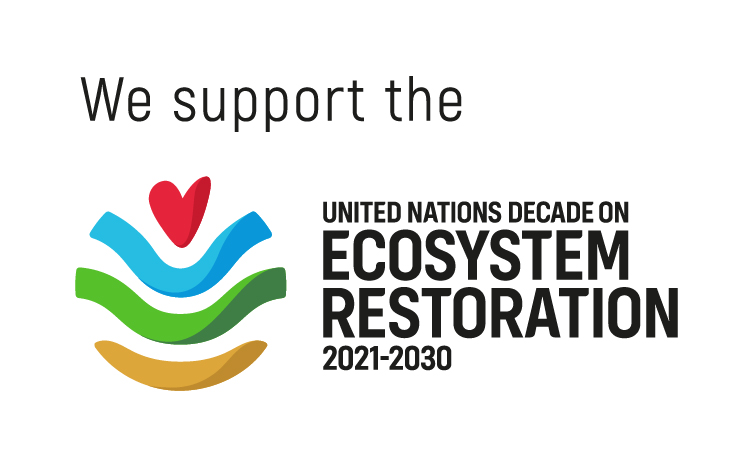Trees offer a wide array of benefits that encompass environmental, social, economic, and
ecological aspects. Recognizing and preserving the value of trees is crucial for a sustainable
and healthy future for both human societies and the natural world.

|
ENVIRONMENT BENEFITS
|
Environment Benefits of Planting Trees
-
Trees clean the air.
They filter pollutants and remove harmful gasses from the air, leading to cleaner and healthier
environments.
There is up to a 60% reduction in street level particulates with trees - Coder, Dr. Kim D.,
"Identified Benefits of Community Trees and Forests", University of Georgia, October 1996.
-
Trees provide oxygen & absorb carbon dioxide.
Trees play a vital role in producing oxygen through photosynthesis, which helps to improve air
quality and support life on Earth.
One acre of forest absorbs six tons of carbon dioxide and puts out four tons of oxygen. - U.S.
Department of Agriculture.
Planting trees remains one of the cheapest, most effective means of drawing excess CO2
from the atmosphere. Prow, Tina., "The Power of Trees", Human Environmental Research
Laboratory at University of Illinois
-
Trees protect the soil.
Tree roots help prevent soil erosion by holding the soil together, reducing the risk of landslides and
improving water quality by filtering pollutants.
-
Trees recharge ground water.
Trees reduce runoff. A typical community forest of 10,000 trees will retain approximately 10
million gallons of rainwater per year - United States Forest Service Research.
-
Trees offer a habitat to wildlife & birds.
Trees support the lives of many small and large organisms. Trees are used for food, shelter, and as
sites of reproduction. Many animals also use trees for resting, nesting as well as vantage points for
hunting and prey capture. During times of extreme heat or precipitation, animals seek shade and
shelter under the trees without being away from their food source; the shade helps them regulate
their body temperatures.
-
Trees help with clean water.
Trees act as natural pollution filters for water . Their canopies, trunks, roots, and associated
soil and other natural elements of the landscape filter polluted particulate matter out of the
flow, reducing the amount of pollution that is washed into a drainage area. Trees use
nutrients like nitrogen, phosphorus, and potassium which can pollute streams. American
Forests Magazine, "Trees Tackle Clean Water Regulations" , Summer 2000.
|

|
ECONOMIC BENEFITS
|
Econimic Benefits of Planting Trees
Trees conserve energy.
Trees strategically planted around buildings can provide shade during hot summers, reducing the
need for air conditioning. They also act as windbreaks during cold winters, reducing heating costs.
By modifying local microclimates, trees can help conserve energy and lower utility bills for property
owners and occupants.
The evaporation from a single large tree can produce the cooling effect of 10 room size air
conditioners operating 20 hours a day. - US Department of Agriculture pamphlet # FS-363
Trees provide timber and other forest products.
Trees serve as a valuable source of timber and various forest products, including lumber, paper,
furniture, and other wood-based materials. Sustainable forestry practices ensure a continuous
supply of wood products while promoting forest health and biodiversity.
One out of every four pharmaceutical products used in the US comes from tropical forest
plants - USDA Forest Service Pamphlet # R1-92-100.
In the Panchmahal district (the location of our first planting program), a study found that the
villagers would have to spend 40% of their cash income on cooking fuel alone if they did not
get twigs and branches from trees.
Trees generate employment.
From tree planting and maintenance to logging, wood processing, and forest management, these
sectors contribute to local and regional economies by creating jobs and generating income. For
every 20,000 trees planted by Grow-Trees.com, over 1,500 - 1,800 workdays are created in the
nursery and planting activities alone.
Trees increase property values.
Trees enhance the aesthetic appeal of residential and commercial properties, leading to increased
property values. Well-maintained landscapes with mature trees are often more desirable and can
attract potential buyers or tenants, resulting in higher real estate prices or rental rates.
Trees can help increase the value of your property, sometimes by 10% - 20%.- US Department
of Agriculture pamphlet # FS-363
Trees boost tourism and recreation.
Forested areas, parks, and green spaces attract tourists and visitors. Tourist activities such as
camping, hiking, birdwatching, and nature photography generate revenue and create jobs in the
tourism industry.
Urban parks with trees can improve the quality of life for locals and boost the local economy by
encouraging more leisure time.
Trees help in carbon offsetting and trading.
Trees play a crucial role in carbon sequestration. Companies and individuals can invest in tree
planting initiatives to offset their carbon emissions and participate in carbon trading markets. This
creates economic opportunities in the form of carbon credits and incentivizes tree planting projects.
|

|
SOCIETY BENEFITS
|
Society Benefits of Planting Trees
Trees lead to improved mental health and well-being.
Spending time in nature has been shown to have positive effects on mental health. Trees and green
spaces can reduce stress, alleviate symptoms of anxiety and depression, and improve overall
psychological well-being. They provide a peaceful and calming environment that promotes
relaxation and rejuvenation.
Hospital patients in Pennsylvania who recovered from surgery in a room with a view of a
stand of trees needed less-potent pain medications and were released seven to nine days
earlier than patients in rooms facing a brown brick wall. - R Ulrich, "View Through a Window
May Influence Recovery from SurgeryTrees help with noise reduction.
Trees can act as natural barriers to reduce noise pollution from traffic, construction, or other
sources. Their leaves, branches, and trunks absorb and block sound, creating a quieter and more
peaceful environment. This can have a positive impact on people's well-being, particularly in urban
areas.Trees improve the aesthetics of surroundings.
Trees enhance the visual quality of urban and rural landscapes, making them more attractive and
appealing. Their beauty and natural aesthetics contribute to a sense of place, identity, and pride
within communities.Trees help in maintaining clean water sources.
Trees intercept and absorb rainwater through their leaves, branches, and trunks. This helps to
reduce the volume and velocity of stormwater runoff, minimizing erosion and the transport of
pollutants into water bodies. The roots of trees also act as natural filters, trapping sediment and
contaminants, thereby improving water quality.
|












